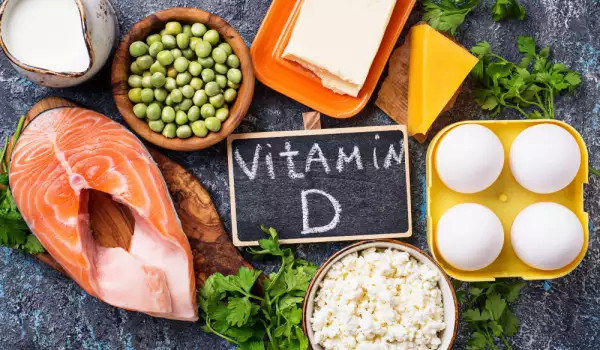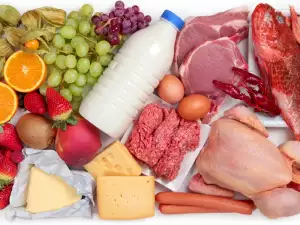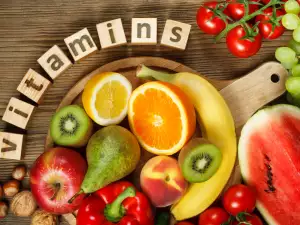Nutritional diet is part of the treatment for some diseases, mainly of the digestive system and everyone knows this. In other health problems, food does not seem to be among the important points in controlling the symptoms. One such disease is osteoporosis, which affects the bone system.
In fact, this is not true, because even with such complaints, nutrition is essential for dealing with the health problem. In order to make a connection between a given disease and the necessary nutritional diet, one must know the essence of the disease and the requirements that go with it.
Essence of the disease osteoporosis
Osteoporosis is a disease of bone tissue. With it, the bones become very fragile and brittle, even with minor physical exertion. Bone mineral density decreases and this leads to serious fractures of the limbs, the neck of the femur and the spine.
Reasons for the disease can be genetic - the presence of a family predisposition suggests such a development, as well as smoking, excessive use of alcohol, low calcium intake, vitamin D deficiency, problems with metabolism in the body, a sedentary lifestyle.
Diagnosing osteoporosis is not difficult. The main problem is that this usually happens when the disease is already in a very advanced stage. That is why osteoporosis is also known as the Silent Disease. Among the symptoms of osteoporosis are curvature of the spine and the appearance of joint and lower back pain at night.
Due to the reduced amount of calcium in the body, the destruction of bone tissue and a change in the structure of the bones is observed, which is clearly expressed. As a result, numerous bursts and broken bones occur.
In case of frequent pain in the spine, joints, lower back at night, a bone density test should be done by a specialist.

Diagnosis of osteoporosis requires a photograph of the spine, an analysis of the amount of calcium and phosphorus in the body, as well as an examination of an apparatus for measuring bone density.
The diagnosis of osteoporosis requires immediate treatment to stop the progression of the disease. In addition to the medications prescribed by the treating specialist, the correct diet plays a major role in the treatment. It leads to an improvement in the condition of the bones.
The most important thing is for the patient to adhere to the general rules of nutrition related to this disease, they will help them to preserve and increase the content of calcium in the blood, as well as restore the metabolism in the body.
Foods suitable for osteoporosis
Calcium is needed to maintain bone strength. Therefore, consumption of milk, dairy products, fish, meat, eggs and legumes, which are rich in protein, phytohormones and calcium, is a major recommendation. Legumes, which are beneficial for osteoporosis are: beans, peas, lentils, chickpeas, carob, soybeans, peanuts.
Beneficial trace elements can be found in dark green vegetables, raw or cooked, as well as in fresh parsley, celery, horseradish leaves, carrots, cabbage, zucchini, broccoli, garlic and spring salad greens, which help and provide beneficial influence on the strength of the bone system.
No less important is the combination of foods that maintains the stable state of the bone system. A great natural combination of superfoods is sesame seeds and honey, which together become an extremely beneficial food mix for bone strength.
Calcium, which is contained in sesame seeds, supports bones. Also, the intake of vitamin D with food protects against osteoporosis, but it should be known that they should not be used alone for the prevention and treatment of the disease. They are rather an addition in the prevention and treatment of osteoporosis.
Vitamin D is needed by the body to absorb and process calcium.
When the skin is exposed to the sun, the body acquires vitamin D, but reasonable exposure to the sun is recommended to prevent skin cancer problems.
Very important for osteoporosis prevention is the consumption of nuts and seeds, whether they are sunflower, pumpkin seeds, hazelnuts, cashews or almonds.

For the prevention of this particularly dangerous disease, and if it is established, the treatment must be carried out by a good specialist who also gives advice on the nutritional diet.
Foods rich in vitamins and minerals that support bones
Foods that are rich in calcium and vitamin D are particularly beneficial for bone density.
Along with these proven nutrients, the following micronutrients are of great importance for the prevention and treatment of osteoporosis: vitamin C, magnesium and potassium. They are obtained naturally through food. You need:
- Cabbage;
- Cauliflower;
- Citrus fruit;
- Cucumber;
- Fish.
Calcium, in addition to being contained in dairy products, is also present in other foods such as dark green leafy vegetables.
Regular consumption of any sprout, including Brussels sprouts, Chinese, cauliflower or broccoli, are all rich in calcium, which reduces the risk of osteoporosis.
We all know that citrus fruit are a rich source of vitamin C, but it should also be taken into account that this vitamin plays an important role in the prevention of bone disease, or more precisely, bone thinning.
This is because vitamin C is needed for the production of collagen, which binds and supports bones, muscles, tendons and cartilage. A substance called fibrous protein is the protection of the bones.
Getting vitamins in osteoporosis is essential to controlling the disease. They strengthen immunity and play an important role in disease control.
Cucumber contains vitamins C, A, B1, B2 and is therefore a great choice. It is also an excellent diuretic and helps the body rid itself from toxins. Provides the body with magnesium, potassium and silicon dioxide, important for the health of connective tissues in muscles, tendons, cartilage. The peel contains vitamin A.
Fish contains omega-3 fatty acids, which strengthen bones and joints and are also good for the cardiovascular system.
Many varieties of oily fish are rich in vitamin D, which helps bones absorb calcium. Such fish are: mackerel, carp, silver carp and tuna.
Meat foods are not the most beneficial option for osteoporosis, but the body still needs meat. Turkey is a good choice because it has less fat. Homemade dried meats are also very healthy, they are also recommended by some specialists.
Harmful foods for osteoporosis that should be excluded from the menu
White flour, biscuits, white sugar and trans fats are particularly harmful to bones and should be avoided.
Also, smoked meat and sausages - it is desirable to forget about them, this includes smoking, which also has an adverse effect on bones.
Excessive use of alcohol and coffee is harmful to bone health because it also increases the excretion of calcium through the urine.
Salt, consumed in unlimited quantities, can seriously harm the bones because it contains sodium, which also stimulates the removal of calcium from the body. Technologically processed foods saturated with trans fats do not do the bones any favors, and therefore ready and semi-cooked food is not an option for eating. Home-cooked meals can successfully control the disease.




















Comments